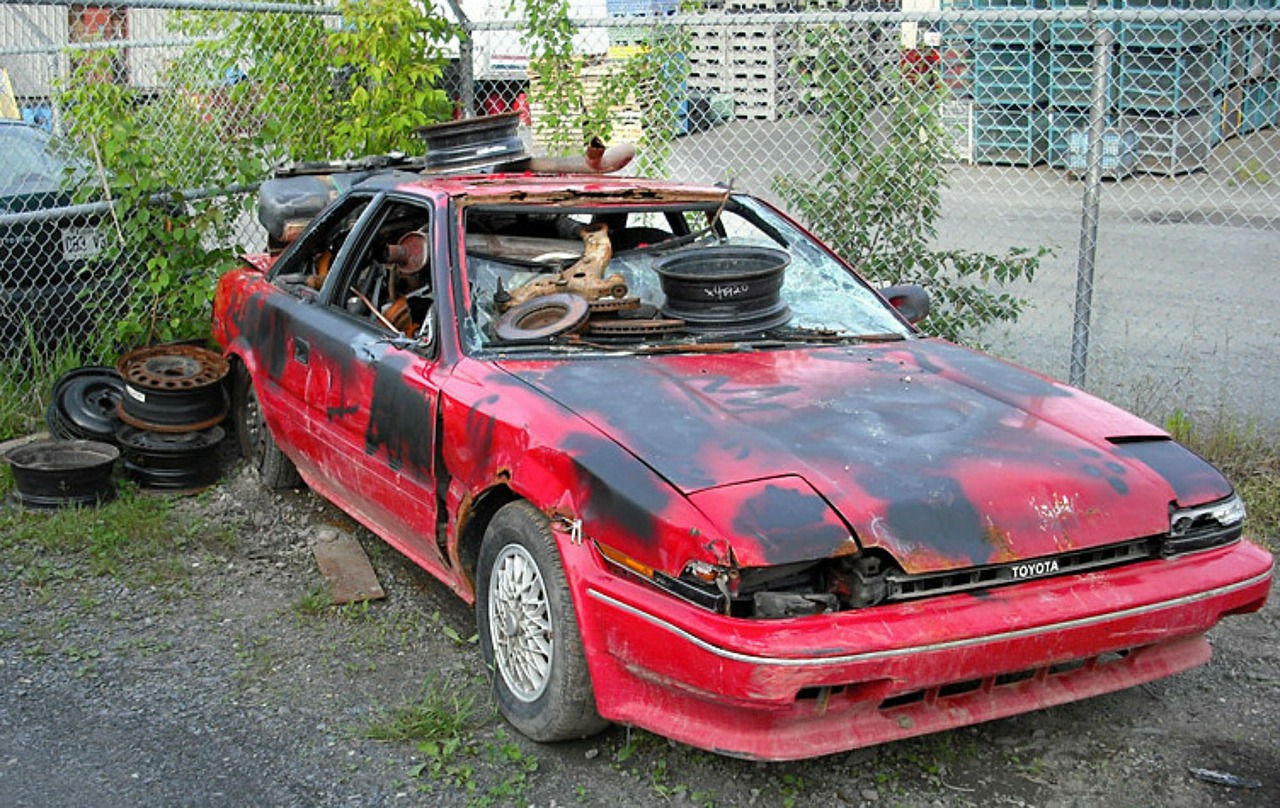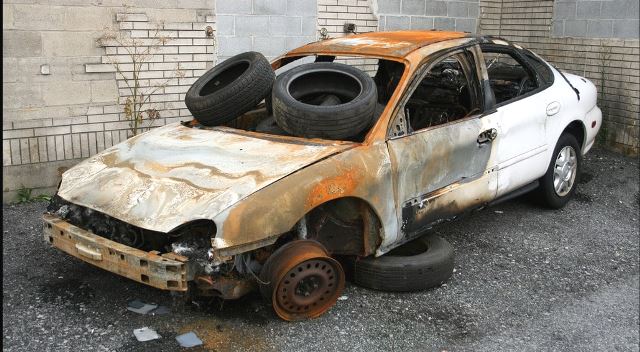The Environmental and financial Benefits of Recycling Junk Cars
Reusing junk autos offers various economic and environmental advantages that extend well past waste decrease. By reclaiming approximately 90% of lorry parts, this practice significantly decreases landfill worry while maintaining vital all-natural sources. It cuts down on power use and greenhouse gas emissions connected to raw product extraction and manufacturing. The procedure additionally produces work possibilities across various markets, from dismantling to logistics, and provides consumers with cost-efficient car components. These advantages highlight the multifaceted worth of recycling scrap cars, yet there are better aspects to take into consideration when examining its complete influence.
Decreasing Land Fill Waste
Lowering garbage dump waste with the recycling of junk cars plays a critical role in environmental preservation. When automobiles reach completion of their life cycle, reliable reusing processes can significantly reduce the quantity of waste that finishes up in landfills. Junk automobiles, otherwise appropriately recycled, add to the growing issue of land fill overcapacity, intensifying environmental destruction and potentially infecting soil and groundwater with harmful compounds such as oil, gas, and heavy steels.

Moreover, the recycling procedure minimizes the damaging impacts of auto waste on biodiversity. Landfills are well-known for disrupting neighborhood environments, and minimizing the increase of scrap vehicles assists preserve natural environments. Ultimately, recycling junk cars and trucks is a strategic method that fosters sustainable waste monitoring, straightening with more comprehensive environmental goals.
Conserving Natural Resources
Along with mitigating garbage dump overcapacity, recycling junk automobiles plays a significant function in conserving natural deposits. The automobile industry is heavily reliant on various steels, plastics, and other materials that need extensive mining and processing. By recycling scrap cars and trucks, we significantly reduce the need for raw products, therefore suppressing the environmental deterioration connected with mining activities. Reusing steel from old cars lowers the necessity for iron ore extraction, which in turn decreases energy intake and greenhouse gas discharges.
Moreover, the procedure of reusing car parts such as copper, lead, and light weight aluminum is much less energy-intensive than creating these materials from virgin sources. This energy financial savings converts straight right into minimized fossil gas usage and reduced carbon footprints (sell car to junkyard). Additionally, by reclaiming and repurposing materials, we extend the lifecycle of non-renewable resources, guaranteeing they continue to be readily available for future usage
In addition, recycling auto fluids like transmission, antifreeze, and oil fluid stops dangerous substances from contaminating soil and water junk my car near me sources. Through systematic recycling efforts, these fluids can be cleansed and recycled, advertising a circular economy and more reducing the strain on natural deposits. Thus, reusing scrap automobiles offers a multifaceted technique to preserving our earth's invaluable all-natural assets.
Creating Task Opportunities
The recycling of junk autos not just profits the environment but additionally promotes economic growth by producing job opportunities. This burgeoning industry supplies a broad array of work prospects, varying from the preliminary collection and transport of old cars to the intricate processes of taking apart, sorting, and repurposing the numerous parts.

The proliferation of reusing plants even more enhances the job market, requiring functions such as designers, maker drivers, and quality assurance experts to guarantee and take care of the innovative machinery compliance with environmental guidelines. Even management positions, such as sales, advertising, and client service, see a rise as the industry broadens.
Reducing Manufacturing Expenses
By incorporating recycled products from junk autos, manufacturers can dramatically decrease manufacturing expenses. The energy called for to refine recycled products is considerably much less than that needed to generate brand-new products from scrape.
In addition, the recycling procedure aids streamline the supply chain by offering a consistent increase of products that are readily offered and often less additional resources costly than recently mined resources. These cost effectiveness are specifically important in an extremely competitive sector like auto production, where margins can be razor-thin. Furthermore, the recycling of scrap autos assists alleviate the unstable pricing of basic materials, allowing suppliers to far better forecast and control their production budgets.
Giving Inexpensive Vehicle Parts
When scrap automobiles are reused, the accessibility of budget friendly car parts significantly increases, profiting both consumers and repair work stores. Recycled vehicle parts are often cost a fraction of the expense of new components, providing a cost-efficient choice for car owners and mechanics. This affordability can be critical for individuals that may not have the financial ways to buy brand-new elements, enabling them to maintain their vehicles in operational and secure condition.
Repair stores also gain from this boosted accessibility of inexpensive components. By sourcing recycled parts, these companies can reduce their functional costs, which can be passed on to consumers through reduced solution fees. This, in turn, can lead to greater why not find out more client contentment and commitment, as customers value the expense savings without endangering on top quality.
Furthermore, the high quality of recycled parts has actually enhanced substantially over the years, many thanks to developments in recycling procedures and quality assurance measures. Numerous recycled components undertake extensive screening to guarantee they meet market standards, providing integrity similar to brand-new parts - sell car to junkyard. By giving a premium and financially practical choice, the recycling of scrap cars and trucks plays a pivotal duty in sustaining both the vehicle repair service market and the broader consumer market
Conclusion
Recycling junk automobiles offers significant economic and environmental benefits by substantially minimizing garbage dump waste and preserving all-natural sources. Generally, the recycling of scrap autos sustains both economic development and sustainability objectives.
Reusing scrap automobiles provides many financial and ecological advantages that extend well beyond waste reduction. Junk autos, if not correctly recycled, contribute to the expanding issue of landfill overcapacity, exacerbating environmental destruction and potentially contaminating soil and groundwater with harmful materials such as oil, gas, and hefty metals.
By recycling scrap cars, we considerably decrease the demand for raw materials, thereby suppressing the ecological destruction linked with mining tasks.When scrap vehicles are recycled, the schedule of budget-friendly automobile parts considerably boosts, benefiting both customers and repair service stores.Reusing scrap automobiles offers considerable financial and ecological advantages by substantially decreasing land fill waste and conserving all-natural sources.